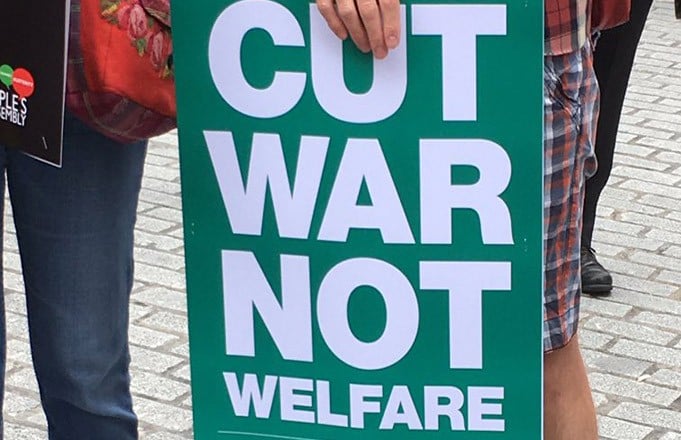

Dear All,
Last month’s election changed the political mood of Britain so dramatically that now the Conservative government is on the back foot in matters which they once considered easy batting: namely Brexit and austerity.
Theresa May’s decision to call an election was a folly similar to Cameron’s to hold a referendum -- arrogant, unnecessary and, eventually, for them regrettable.
But Labour’s comeback performance and the rise in popularity of the ageing, bearded Londoner Jeremy Corbyn has changed not just the public mood but also the media tone. The media started off by sniggering at the backbencher when he entered the Labour leadership contest two years ago. It continued this condescension occasionally mixing it up with the hysteria that he was an evil, dictatorship -- supporting Marxist who condoned Stalinism and the worst excesses of communism…
But electoral gains and a surge in popularity in young supporters have not just changed the media mood but also given Corbyn something of an upper hand in pressing forward on issues he has long considered important.
Labour’s main priority now seems to be to challenge the ‘Austerity’ policy initiated by Cameron and his Chancellor of the Exchequer George Osborne and continued by May. (Osborne, himself from a wealthy family, is now editor of the Evening Standard, and as an election night commentator on ITV’s election night coverage seemed fairly pleased by May’s woes on the night).
Interestingly enough, Labour’s attempts to gain Tory backbenchers’ support for the vote against austerity was reported by the Telegraph thus: "Labour plot to tempt Tory MPs into sabotaging Queen’s speech" (perhaps putting Corbyn somewhat at par with Guy Fawkes!).
Labour was able to get to this position of strength on the austerity issue due in some part to the terror attacks that happened in the run-up to the election. The initial reading was that the incidents would influence the polls by swinging people to the right with a more security-state, xenophobic reaction but the impressive responses of the emergency services focused attention instead on how austerity cuts have undermined both the police and the NHS, and so increased pressure on dedicated staffers who remain dreadfully underpaid thanks also to the salary freeze.
After the election, the horrendous fire at a tower block in West London in which dozens of families (at least 70 people confirmed) were burned to death, underlined the human cost of cuts to both council services and the Fire departments. And awful though it is, these deadly incidents have served to illustrate why people argue in favour of investing in public services.
When the Conservatives launched their austerity programme, the idea was to plug the leaks in spending and ‘balance the books’. They also told the electorate that ‘we are all in this together’ but that was scoffed at by many who remarked that the cuts were only hitting the poorest in society and making no difference at all to the rich. University fees were tripled, large numbers of public libraries were closed down and investment in youth initiatives suffered too. Social service benefit payments were also re-examined and trimmed (which many people actually supported as they wanted an end to the culture of ‘benefits cheats’ or ‘scroungers’), but the problem was that most of these changes served to humiliate and pressurise the most vulnerable of claimants.
But it wasn’t just a question of numbers: these changes have served to hit the very ethos of British society, punishing rather than rewarding those working in public education health or emergency services, taking away places for communities to congregate and access books, computers and advice, creating an effective apartheid at the university level and presenting large numbers of graduates with debt and unemployment and very little hope…
For many people in Britain this policy has resulted in a sneaky erosion of the Welfare State that was painstakingly built by post-war governments, and the election results seems to tell us that this is not something the electorate wants.
So it will be interesting to see how this plays out further over the next few months and how this features in any forthcoming elections.
Best wishes,